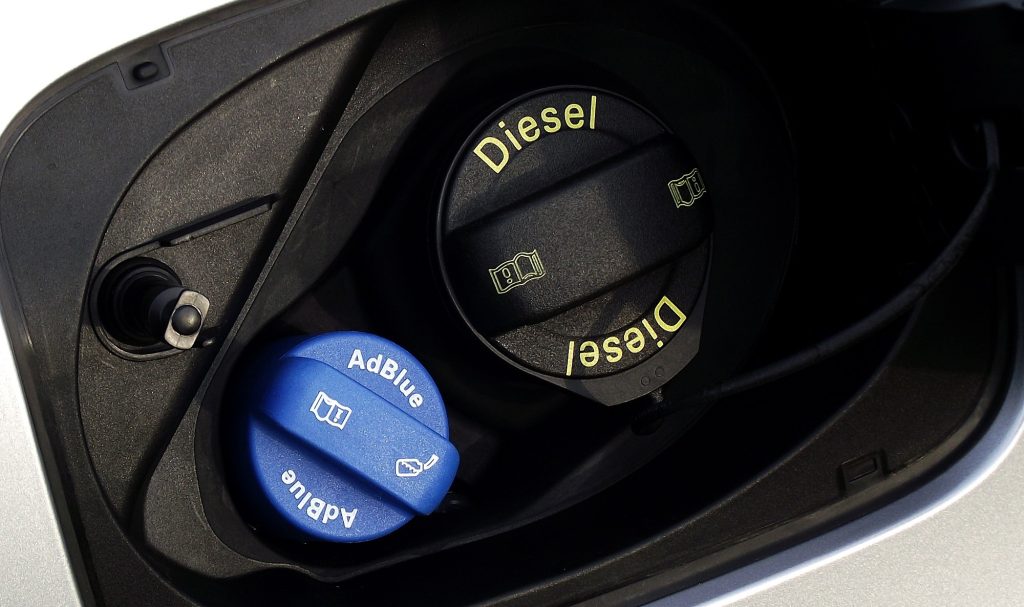Adblue plays a crucial role in modern diesel cars, helping to reduce harmful emissions and keep your vehicle environmentally compliant. However, mishandling Adblue in diesel car systems can lead to engine issues and expensive repairs. Understanding how to manage Adblue correctly is essential for any diesel car owner. In this article, we will guide you on handling Adblue in diesel car systems safely and efficiently.
What is Adblue?
Adblue is a high-purity urea solution designed to reduce nitrogen oxide (NOx) emissions from diesel engines. It works through a process called selective catalytic reduction (SCR), which converts harmful gases into harmless nitrogen and water vapor. Adblue in diesel car systems is not a fuel additive but a separate liquid that is injected into the exhaust system. Proper maintenance and handling are critical, as misuse can cause engine warning lights, injector damage, or SCR system failure.
Why Proper Handling is Important
Handling Adblue in diesel car systems incorrectly can have serious consequences. Using contaminated Adblue or mixing it with other fluids can damage the SCR system, leading to costly repairs. Additionally, overfilling or spilling Adblue near engine components may result in corrosion. Ensuring you follow the correct procedure and use high-quality Adblue helps maintain engine efficiency and prevents unexpected breakdowns.
Tips for Handling Adblue in Diesel Car
1. Use the Right Adblue
Always purchase Adblue from reputable suppliers. Low-quality Adblue can contain impurities that damage your diesel car’s SCR system. Look for Adblue that meets ISO 22241 standards, which guarantees purity and performance. Using the correct Adblue ensures your diesel car runs smoothly and emissions are properly controlled.
2. Store Adblue Properly
Adblue is sensitive to temperature and contamination. Store it in a cool, dry place away from direct sunlight and extreme temperatures. Exposure to heat above 30°C or freezing below -11°C can compromise the quality. Proper storage ensures that your diesel car receives the correct chemical balance when refilling.
3. Refill Carefully
When refilling Adblue in diesel car tanks, avoid spills. Use the designated Adblue nozzle and container, and never pour Adblue into the diesel fuel tank. Always follow your car manufacturer’s instructions for filling, as overfilling or underfilling may cause the system to malfunction.
4. Avoid Contamination
Even small amounts of dirt, oil, or fuel in the Adblue tank can damage the SCR system. Always check the nozzle and container for cleanliness before refilling. Keeping Adblue pure is essential for engine health and for avoiding costly repairs.
5. Monitor Adblue Levels
Most modern diesel cars have sensors that monitor Adblue levels. Regularly check the dashboard indicator to ensure you never run low. Running out of Adblue can prevent the car from starting or trigger engine derating, which reduces performance until the tank is refilled.
6. Follow Manufacturer Guidelines
Every diesel car model has specific recommendations for Adblue usage. Consult your owner’s manual for the correct type, volume, and maintenance schedule. Following manufacturer guidelines reduces the risk of engine damage and keeps your emissions control system functioning correctly.
7. Professional Assistance
If you are unsure about handling Adblue in diesel car systems, seek professional help. Certified mechanics have the tools and knowledge to refill, check, and maintain the SCR system without causing damage. Professional assistance ensures your diesel car continues to operate safely and efficiently.
Common Mistakes to Avoid
- Using non-standard Adblue or mixing fluids.
- Storing Adblue in hot or freezing conditions.
- Overfilling the Adblue tank.
- Ignoring dashboard warnings.
- Refilling with a dirty nozzle or contaminated container.
Avoiding these mistakes will prolong the life of your diesel car’s engine and emission system. Consistent attention to Adblue handling is key to preventing engine issues and maintaining performance.
Conclusion
Proper handling of Adblue in diesel car systems is essential for engine health, emissions compliance, and long-term performance. By using high-quality Adblue, storing it correctly, refilling carefully, and following manufacturer guidelines, diesel car owners can avoid costly repairs and maintain optimal engine efficiency. Monitoring levels and avoiding contamination ensures the SCR system functions properly, preventing engine derating and warning lights. Paying attention to these practices allows you to enjoy a smooth, reliable, and environmentally friendly driving experience.
